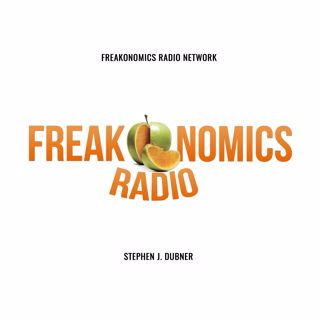Jaksokuvaus
Daniel Kahneman left his mark on academia (and the real world) in countless ways. A group of his friends and colleagues recently gathered in Chicago to reflect on this legacy — and we were there, with microphones. SOURCES:Maya Bar-Hillel, professor emeritus of psychology at the Hebrew University of Jerusalem.Shane Frederick, professor of marketing at the Yale School of Management.Thomas Gilovich, professor of psychology at Cornell University.Matt Killingsworth, senior fellow at the Wharton School of the University of Pennsylvania.Barbara Mellers, professor of psychology at the University of Pennsylvania.Eldar Shafir, director of the Kahneman-Treisman Center for Behavioral Science & Public Policy at Princeton University.Richard Thaler, professor of behavioral science and economics at the University of Chicago. RESOURCES:"Experienced Well-Being Rises With Income, Even Above $75,000 Per Year," by Matthew A. Killingsworth (PNAS, 2021)."The False Allure of Fast Lures," by Yigal Attali and Maya Bar-Hillel (Judgment and Decision Making, 2020)."Learning Psychology From Riddles: The Case of Stumpers," by Maya Bar-Hillel and Tom Noah (Judgment and Decision Making, 2018).Thinking, Fast and Slow, by Daniel Kahneman (2011)."High Income Improves Evaluation of Life but Not Emotional Well-Being," by Daniel Kahneman and Angus Deaton (PNAS, 2010)."Varieties of Regret: A Debate and Partial Resolution," by Thomas Gilovich, Victoria Husted Medvec, and Daniel Kahneman (Psychological Review, 1998)."Some Counterfactual Determinants of Satisfaction and Regret," by Thomas Gilovich and Victoria Husted Medvec (What Might Have Been: The Social Psychology of Counterfactual Thinking, 1995). EXTRAS:"Remembering Daniel Kahneman," by People I (Mostly) Admire (2024)."Academic Fraud," series by Freakonomics Radio (2021)."Here’s Why All Your Projects Are Always Late — and What to Do About It," by Freakonomics Radio (2018)."The Men Who Started a Thinking Revolution," by Freakonomics Radio (2017).

